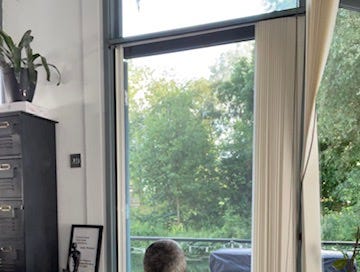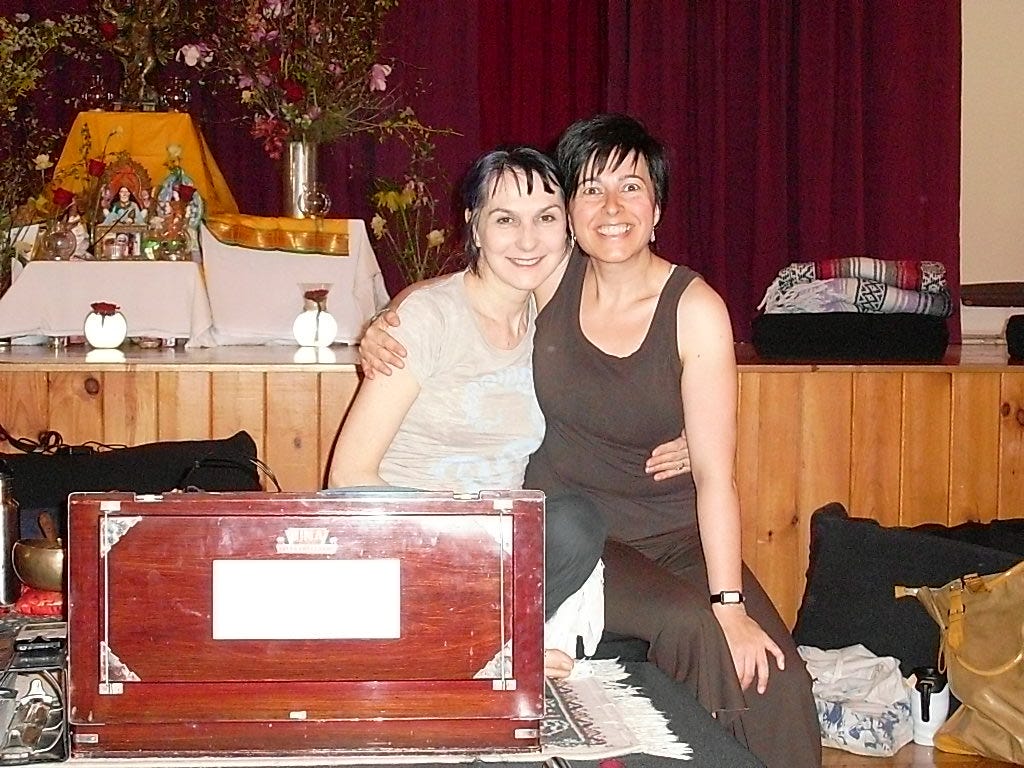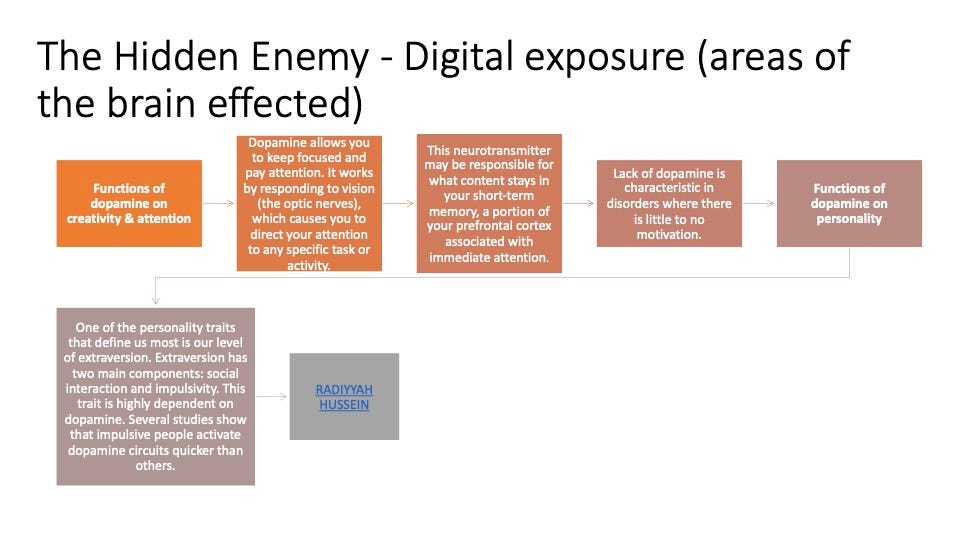This is part 3 of 3 posts and podcasts dedicated living mindfully with technology.
My hope for this piece is to give you some insights and ideas to better understand and explore your true nature, the vrittis, (the disturbances and distractions of the mind), digital vrittis and the role that technology plays in this equation. Providing you with various teachings and practices to explore how to understand your true nature and find harmony in this technological world.
My ongoing love/hate relationship with technology and information via technology has been really tested these past few weeks. On one hand, it affords me increased opportunities to network and learn. On the other side of the coin it often can create a sense of overwhelm.
So why are l/we so affected by technology? Maybe some answers can be found by returning to some of the eastern philosophical teachings. In most of these lineages it is referenced that we are neither the body or mind or although we have both. Leading to the inevitable question so what are we?
Many believe that we are purely vessels or containers experiencing and absorbing wisdom… if we chose. However, in order to do that fully one must have a somewhat clear and uncluttered mind.
How to cultivate an uncluttered mind?
From first hand experience, l would definitely recommend to start by simplifying your day to day activities. Strengthening your presence from various practices such as chanting, movement and various forms of mindfulness, breathing exercises and meditation, can all help to reduce and soothe an agitated, upset and flustered mind.
One of the first chants l ever learn’t while training with Jivamukti Yoga in New York and London, was this Sutra taken from Patanjali’s Yoga Sutras chapter 1 verse 2. Patanjali recommending one way of managing this aspect of our mind when in full blown overwhelm is to practice yoga (and/or meditation). Helping cultivate some relief and space to settle into our self’s/not self’s.*
The beginning of my chanting journey with Sharon Gannon, at The Omega Institute, Rhinebeck, NY, 2009 Jivamukti Teacher Training.
yogash chitta-vritti-nirodhah
Yoga is the cessation of the fluctuations, or whirlings, of the mind.
Patanjali's Yoga Sutras I.2
Yogas — To yoke, to join, to unite
Chitta — Mind, consciousness
Vritti — Modifications, fluctuations, mental chatter
Nirodha — Controlling, quieting of, self training
Focusing on one thought/thing (as opposed to many at the same time) cultivates a richer awareness and perspective, helping anchor us into the present, (multi tasking relates to something different and there is a time and place for that!).
There are many translations of this verse from different lineages including:
The restraint of the modifications of the mind-stuff is Yoga. —Swami Satchidananda (featured in the Jivamukti Yoga Chant Book.)
Although probably one of my favourites is from Swami Jnaneshvara Bharat.
Yoga is the control (nirodhah, regulation, channeling, mastery, integration, coordination, stilling, quieting, setting aside) of the modifications (gross and subtle thought patterns) of the mind field. —Swami Jnaneshvara Bharat
In yoga philosophy the mind is believed to have four functions.
Manas is the aspect of the mind that records external stimuli.
Buddhi, sometimes called “higher mind,” discriminates between and classifies these incoming impressions.
Ahamkara is the ego mind, which filters everything through the lens of “I/me/mine.”
The sum total of these creates the citta or “mindstuff,” a vast warehouse of conscious and subconscious impressions.
Vrittis
Are often translated and compared to thought waves. Vritti and Vritta also means to revolve to turn around, to spin in Sanskrit. I relate this spinning a couple of ways:
Being on the hamster wheel of life and repeating the same patterns but expecting a different outcome. Reliving the same cycles (samskara’s) of feeling, emotions and habits (and not in a positive way).
To turn inwards, revolve and learn into yourself.
While it’s true we experience thousands of thoughts as we move through our day. Patanjali gives us a further roadmap in how to understand, navigate and manage these thoughts by putting them into five types:
Correct perception—something we know based on fact or observation.
Delusion—misperceptions that lead to false conclusions.
Imagination—fanciful or vague impressions.
Deep sleep—the absence of conscious thought.
Memory—recalling past thoughts or events.
Digital Vrittis
However, there are another kind of Vrittis, these are the unseen culprits at play in the background of our day to day living - technology and algorithms. I often think of Technology as a Self and it’s Vrittss (thought waves) as the algorithms themselves that drive it. Algorithms distract and disrupt our thought waves leading to addiction and overwhelm. Therefore having regular time away from phones, i-pads, as well any kind of technology can help quieten any repetitive negative and overwhelmed impressions.
Some of the Digital Vrittis include; stress, anxiety, dissatisfaction, distraction and stuck- ness people are experiencing from an unhealthy balance of Technology overload.
For example did you know the following:
On a daily basis what’s the average amount of hours that UK adults spend on screens? 8hrs 41 mins
What’s the % of people checking facebook every 10 minutes? 34%
What % of UK children say that their parents spend too much time on their mobile devices? 69%
What’s the % of UK adults admitting their spend too much time online? 43%
Below is a slide taken from a presentation l gave pre Covid it makes for very interesting reading.
So let’s park technology to one side and return to instead what we can learn from the eastern and ancient teachings. Lately, due to my natural curiosity l’ve also found leaning into the ZEN teachings of *SELF and NOT SELF. All allowing a different perspective to emerge.
In this exploration of MYSELF, l have found a wonderful, easy to understand and free podcast https://zenstudiespodcast.com/ by a Soto Zen priest Domyo Burk. Her Buddhist teachings on the emptiness of self have been illuminating and have deeply resonated with what l’m currently experiencing.
I share with you a brief but potent part of her teachings below in relation to the “Not Self”. Really enjoying learning more on this fascinating wisdom from the ‘Mahayana’ where the “true nature” of self being empty is discussed.
READING
The Buddha didn’t actually teach “the self is empty,” or, as some people put it, “the self doesn’t exist.” He wholeheartedly discouraged any speculation whatsoever about the true nature of self.
What he taught was anatta, or not-self. That is, a practice of recognizing each and every aspect of our experience, and everything we encounter, as not self. This is an absolutely pragmatic teaching.
The Buddha observed that the process of “I, me, and my making” led to dukkha, stress or suffering. To refrain from that activity led to relief from dukkha.
This is not just about giving up attachment to possessions or pleasure or power, this is also about dis-identifying with the five fundamental elements, that make up a human being – our body, sensations, perceptions, thoughts and volition, and consciousness.
Today we are going to finish with a chant of this sutra, so take a comfortable steady seat and place your hands in a comfortable position, eyes can be open or closed, your choice, then find your breath to anchor yourself. Please feel free to just listen or to join in and chant with me.
Until next time my friends thank you for listening, sharing, and liking.

















Share this post